
Praia de Diante: The Jewel of Cabo Verde
Praia de Diante, located on the island of Sal in Cabo Verde, is a stunning beach destination known for its crystal-clear waters and golden sands. This beautiful beach offers a perfect escape for those seeking relaxation and natural beauty. Whether you want to sunbathe, swim, or try water sports, Praia de Diante has something for everyone. The beach is surrounded by charming local shops and restaurants where you can taste fresh seafood and traditional Cabo Verdean cuisine. The vibrant atmosphere and friendly locals make it a welcoming place for tourists. Don't miss the chance to explore the nearby town of Santa Maria, known for its colorful buildings and lively markets. For the adventurous, Praia de Diante is also a gateway to underwater wonders. Snorkeling and diving opportunities abound, allowing you to discover the rich marine life of the Atlantic Ocean. The beach's gentle waves make it an ideal spot for beginners and seasoned surfers alike. As the sun sets, the beach transforms into a breathtaking scene, perfect for evening strolls and capturing unforgettable photos.
Local tips in Praia de Diante
- Visit early in the morning to avoid crowds and enjoy the serene beauty of the beach.
- Bring cash as some local shops and restaurants may not accept credit cards.
- Don't forget your snorkeling gear to explore the underwater world just off the shore.
- Try the local catch of the day at nearby restaurants for a fresh and authentic dining experience.
- Protect yourself from the sun with high SPF sunscreen and a hat, as the sun can be very strong.
Praia de Diante: The Jewel of Cabo Verde
Praia de Diante, located on the island of Sal in Cabo Verde, is a stunning beach destination known for its crystal-clear waters and golden sands. This beautiful beach offers a perfect escape for those seeking relaxation and natural beauty. Whether you want to sunbathe, swim, or try water sports, Praia de Diante has something for everyone. The beach is surrounded by charming local shops and restaurants where you can taste fresh seafood and traditional Cabo Verdean cuisine. The vibrant atmosphere and friendly locals make it a welcoming place for tourists. Don't miss the chance to explore the nearby town of Santa Maria, known for its colorful buildings and lively markets. For the adventurous, Praia de Diante is also a gateway to underwater wonders. Snorkeling and diving opportunities abound, allowing you to discover the rich marine life of the Atlantic Ocean. The beach's gentle waves make it an ideal spot for beginners and seasoned surfers alike. As the sun sets, the beach transforms into a breathtaking scene, perfect for evening strolls and capturing unforgettable photos.
When is the best time to go to Praia de Diante?
Iconic landmarks you can’t miss
The Pier of Santa Maria
Discover the stunning views, vibrant culture, and delicious seafood at The Pier of Santa Maria in Cape Verde, a must-visit tourist attraction.
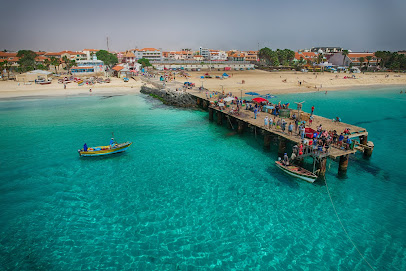
Hotel Riu Touareg
Experience the ultimate luxury at Hotel Riu Touareg on Praia Lacacão, where relaxation meets adventure in breathtaking Cape Verde.
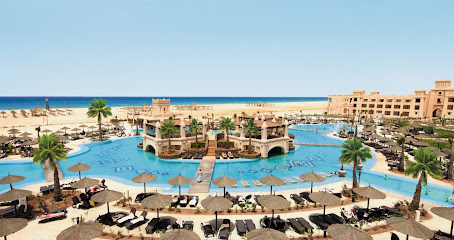
Hotel RIU Karamboa
Experience unparalleled luxury and relaxation at Hotel RIU Karamboa, a tropical haven in Boa Vista, Cape Verde, perfect for all travelers.
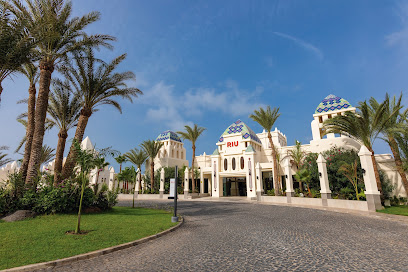
Salinas de Pedra de Lume
Explore the mesmerizing Salinas de Pedra de Lume, an ancient volcanic salt basin offering stunning views and a unique insight into traditional salt production.
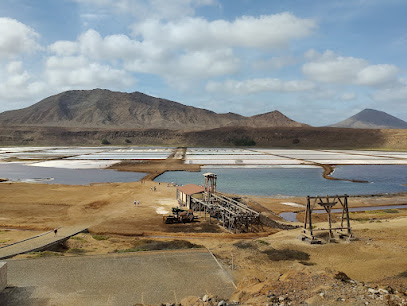
Pachamama Eco Park - Viveiro Botanical Garden
Explore the breathtaking Pachamama Eco Park - Viveiro Botanical Garden, a lush ecological retreat in Cape Verde with diverse flora and tranquil pathways.
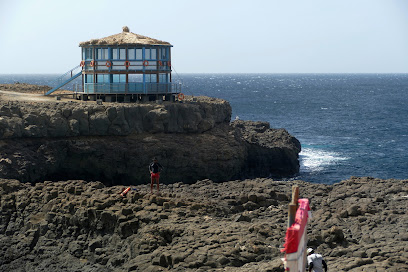
Praia da Atalanta
Experience the breathtaking beauty of Praia da Atalanta, a tranquil beach in Cape Verde that offers pristine sands, crystal-clear waters, and stunning scenery.
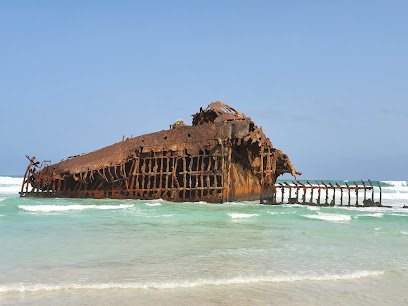
Praia de Santa Mónica
Experience the breathtaking beauty and tranquility of Praia de Santa Mónica, a hidden gem in Cape Verde's stunning coastal landscape.
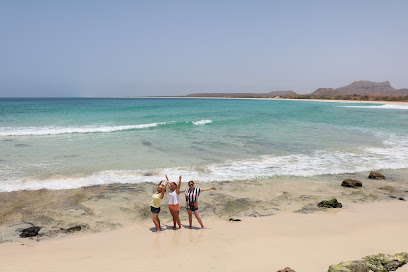
Lighthouse Dona Maria Pia
Discover the stunning Lighthouse Dona Maria Pia, a historical landmark offering breathtaking views and a glimpse into Cape Verde's maritime history.
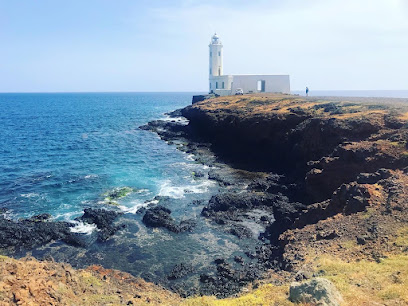
Chapel of Our Lady of Fatima
Discover the tranquility and beauty of the Chapel of Our Lady of Fatima in Sal Rei, a captivating destination for spiritual reflection and cultural exploration.
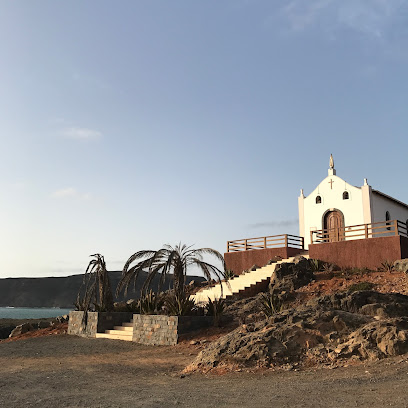
Cape Verde Sailing
Discover the enchanting waters of Cape Verde with Cape Verde Sailing, your gateway to unforgettable boat tours and rental experiences.
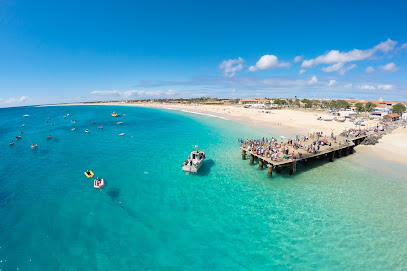
Praia de Cabral
Discover the serene beauty of Praia de Cabral, a pristine beach in Sal Rei, Cape Verde, perfect for relaxation and adventure seekers alike.
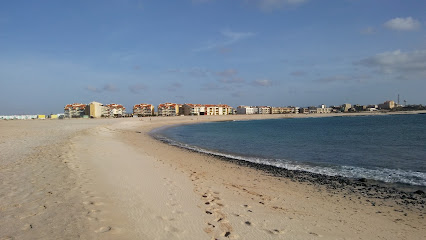
Chaminé de Chaves
Explore Chaminé de Chaves, a historical landmark in Rabil, Cape Verde, where rich heritage meets stunning natural beauty.
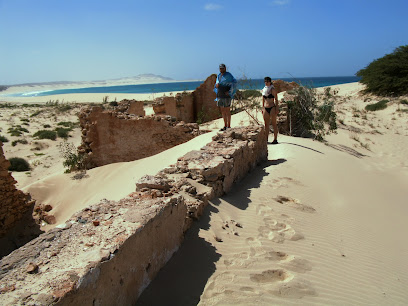
Núcleo Museológico da Praia
Discover the heart of Cape Verde's history and culture at Núcleo Museológico da Praia, a fascinating museum in Praia's vibrant landscape.
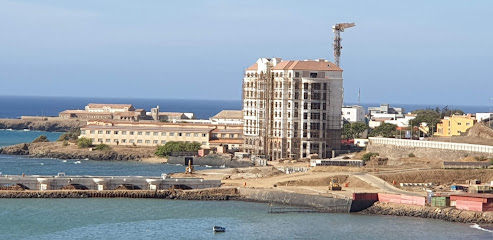
Praia d' Diante
Experience the serene beauty of Praia d' Diante, a stunning beach in Boa Vista, Cape Verde, perfect for relaxation, adventure, and breathtaking views.
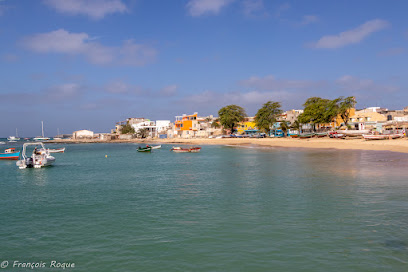
Praia da Chave
Experience the stunning beauty of Praia da Chave, a tropical beach paradise in Cape Verde known for its golden sands and crystal-clear waters.
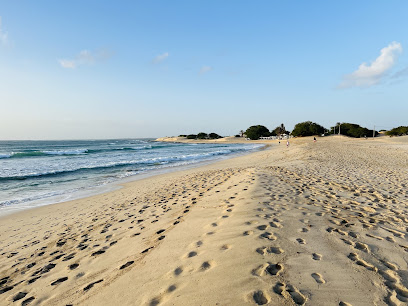
Unmissable attractions to see
Mercado Municipal
Experience the vibrant heart of Santa Maria at Mercado Municipal, a sensory feast of local flavors, crafts, and Cape Verdean culture.
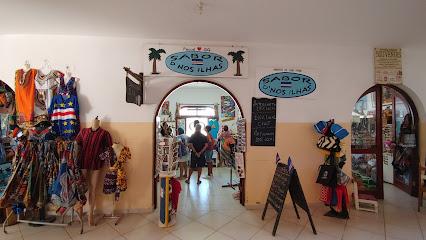
Museu Dos Naufragos
Explore maritime history and enjoy local flavors at Museu Dos Naufragos in Sal Rei, Cape Verde's unique cultural hub.
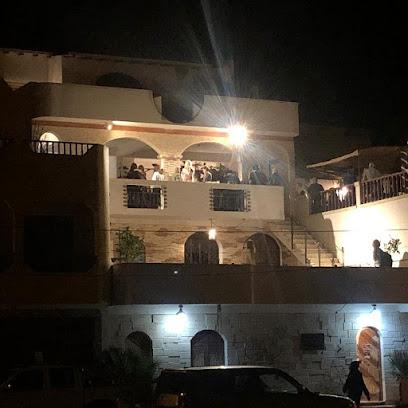
Giggling Gecko Adventures
Discover the breathtaking landscapes of Cape Verde with Giggling Gecko Adventures, your gateway to unforgettable outdoor experiences.
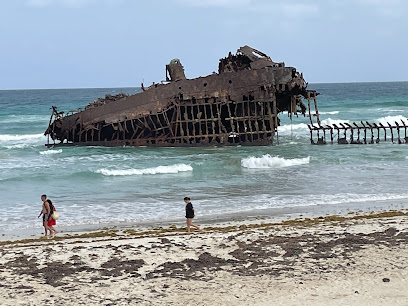
Praia d' Diante
Experience the beauty of Praia d' Diante, a hidden gem in Cape Verde with pristine beaches and breathtaking sunsets perfect for relaxation and adventure.
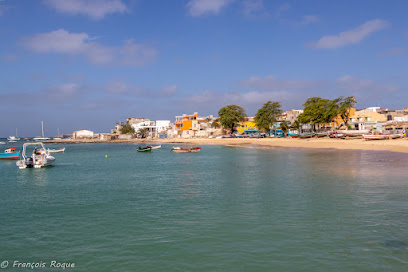
Morabeza Lobby Bar
Experience the vibrant atmosphere and tropical cocktails at Morabeza Lobby Bar in Rabil, Cape Verde—your perfect retreat for relaxation and enjoyment.
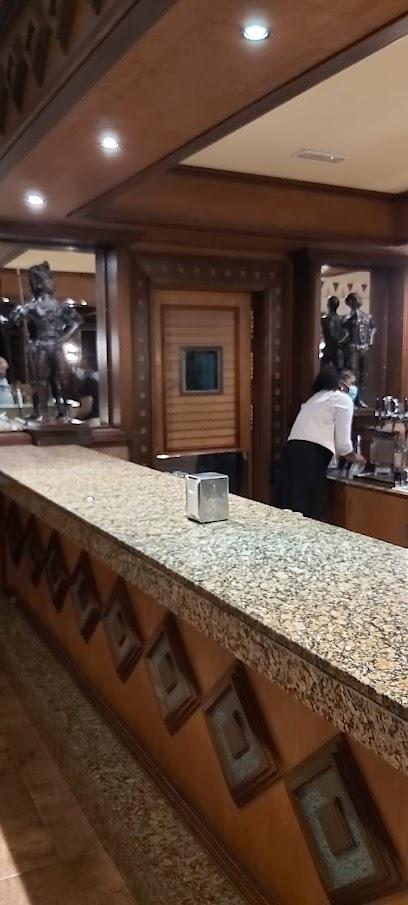
Essential places to dine
Ocean Cafe
Discover Ocean Cafe in Santa Maria - where delicious pizzas meet vibrant nightlife in a charming coastal setting.
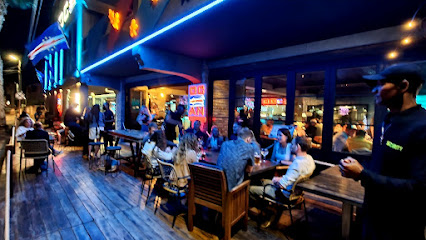
Morabeza Beach Bar & Lounge Restaurant
Experience exquisite dining with ocean views at Morabeza Beach Bar & Lounge Restaurant in Cape Verde – where flavor meets paradise.
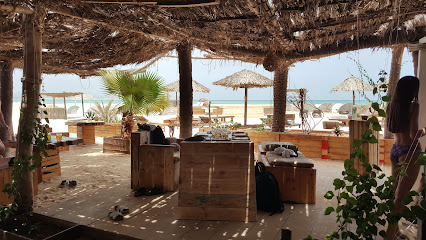
Palm Beach
Discover exquisite seafood and mouthwatering pizza at Palm Beach in Santa Maria - a culinary gem that embodies local flavors.
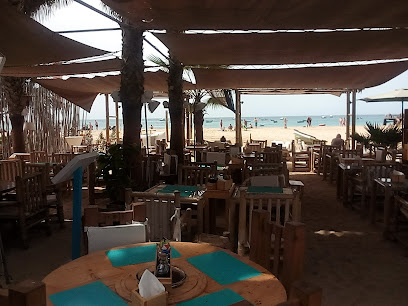
Ponta Preta
Experience authentic Cape Verdean cuisine at Ponta Preta in Santa Maria – a culinary gem with stunning coastal views.
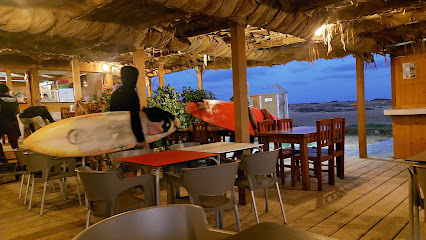
Perola D'Chaves
Discover authentic local flavors at Perola D'Chaves in Rabil - a culinary haven for food lovers.
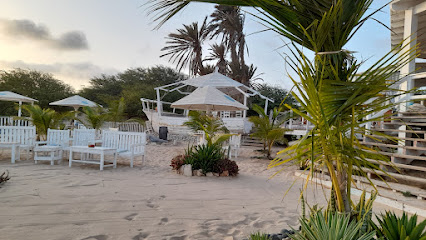
Sal Beach Club
Experience delicious cuisine and breathtaking ocean views at Sal Beach Club in Santa Maria - a must-visit dining destination.
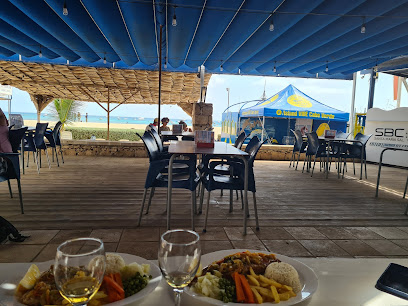
Barracuda
Discover Barracuda in Santa Maria - where fresh seafood meets stunning coastal views for an unforgettable dining experience.
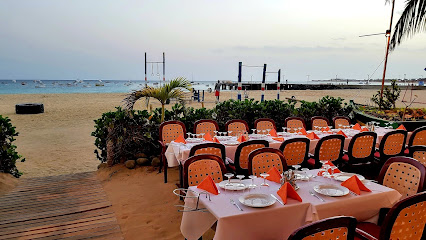
The Bounty Beach Restaurant
Discover culinary bliss at The Bounty Beach Restaurant in Santa Maria – fresh seafood, local flavors & stunning ocean views await you.
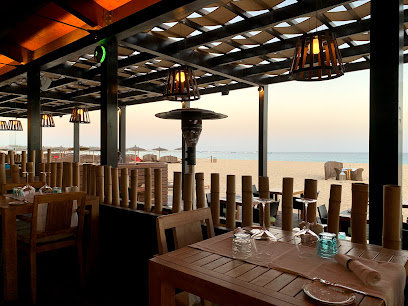
Americos Restaurante
Experience authentic Cape Verdean cuisine at Americos Restaurante in Santa Maria – where delicious flavors meet warm hospitality.
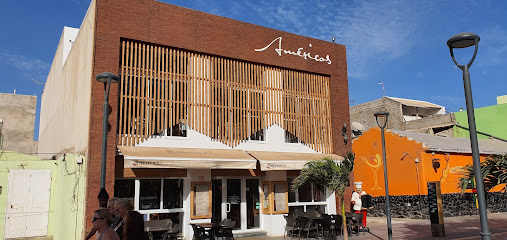
Restaurante Sodade Casa da Cultura
Discover authentic Cape Verdean cuisine at Restaurante Sodade Casa da Cultura—where culture meets flavor in Sal Rei.
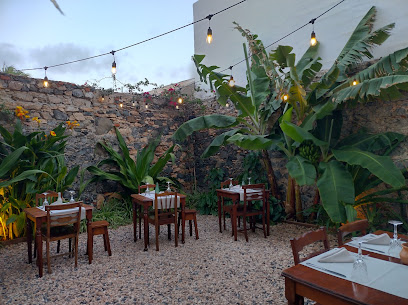
Chez Pastis
Experience authentic Cape Verdean flavors at Chez Pastis in Santa Maria – a must-visit dining destination for every traveler.
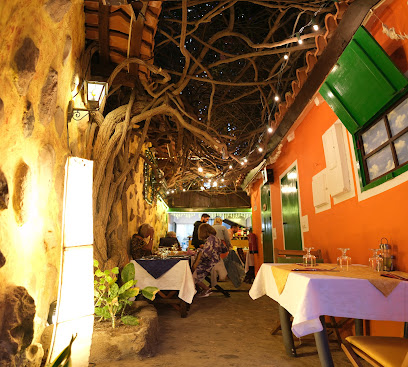
Tortuga Beach Resort
Experience tropical bliss at Tortuga Beach Resort on Praia d’Estoril – where relaxation meets adventure in Sal Rei.
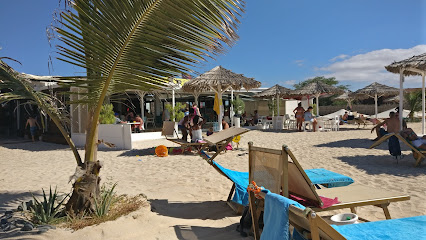
Bahia, The Beach
Experience authentic Cape Verdean flavors at Bahia, The Beach while enjoying breathtaking ocean views on Praia Estoril.
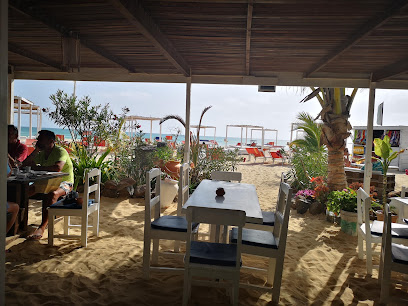
Restaurante Sol Doce
Experience authentic Cape Verdean cuisine at Restaurante Sol Doce in Santa Maria, where every dish tells a story of local tradition.
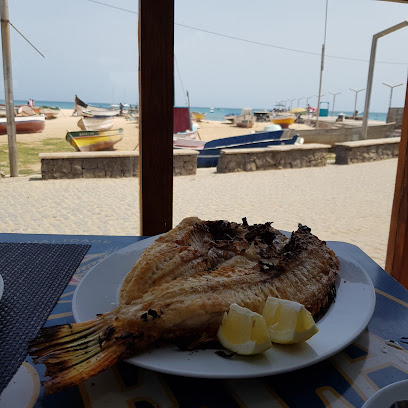
Porton di nos Ilha
Experience authentic Cape Verdean seafood at Porton di nos Ilha—where fresh flavors meet breathtaking ocean views.
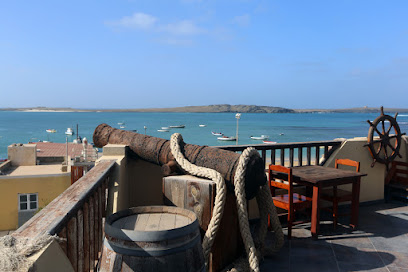
Markets, malls and hidden boutiques
Hotel RIU Karamboa
Experience luxury and tranquility at Hotel RIU Karamboa, a beachfront paradise in Boa Vista, Cape Verde, perfect for relaxation and adventure.
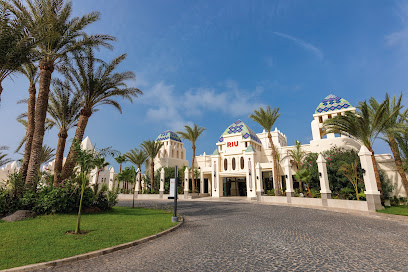
VOI Praia De Chaves Resort
Experience unparalleled luxury and natural beauty at VOI Praia De Chaves Resort, the perfect destination for relaxation and adventure in Cape Verde.

Praia Shopping
Explore the vibrant Praia Shopping in Cape Verde, your ultimate retail haven with diverse shops, delicious eateries, and delightful entertainment options.
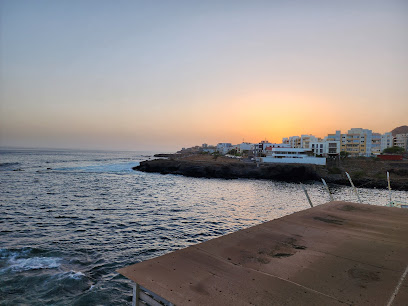
D Concept Design Store
Discover the culinary creativity of D Concept Design Store in Praia, where local flavors meet artistic design in a vibrant dining atmosphere.
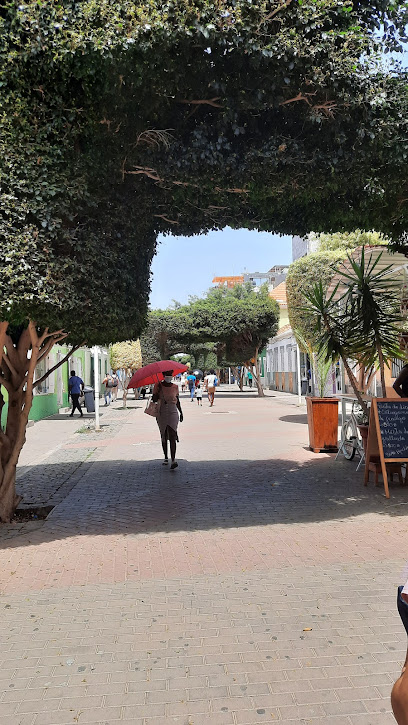
Capvertdesign+Artesanato
Explore Capvertdesign+Artesanato in Mindelo: Your go-to destination for authentic Cape Verdean gifts, crafts, and local artistry.
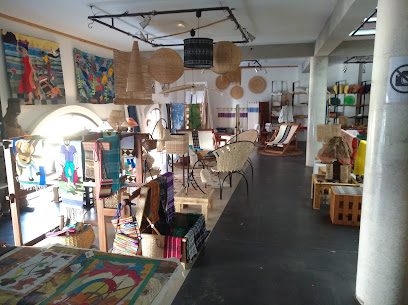
Assomada market
Discover the vibrant Assomada Market in Cape Verde, a cultural hub filled with local crafts, fresh produce, and authentic culinary delights.
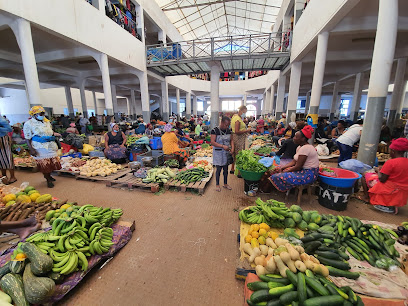
Mercado Municipal
Experience the vibrant culture and flavors of Cape Verde at Mercado Municipal, Sal Rei's bustling market filled with local produce and crafts.
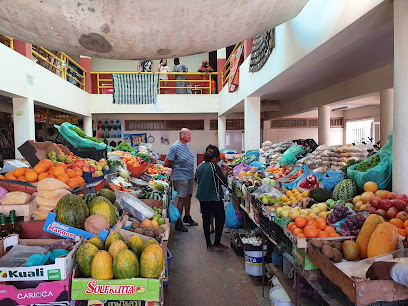
Hotel MiraBela
Discover the vibrant charm of Cape Verde at Hotel MiraBela, your ideal retreat in Santa Maria with warm hospitality and local attractions.
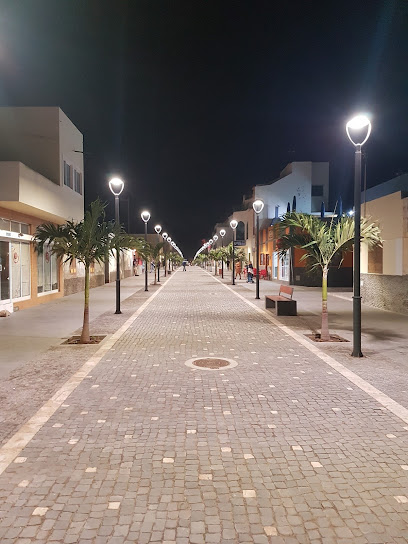
Aicha's Beach Shop
Discover authentic Cap Verdean souvenirs at Aicha's Beach Shop—your ideal destination for unique gifts and local crafts in Curral Velho.
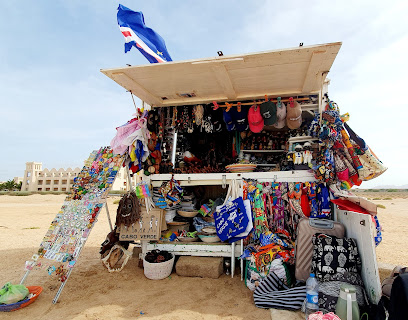
BodyConcept Praia
Experience the ultimate beauty and wellness retreat at BodyConcept Praia, your go-to destination for rejuvenating treatments in the heart of Cape Verde.

Art de Mar Boavista
Discover the essence of Cape Verde at Art de Mar Boavista, where every handcrafted piece tells a story.
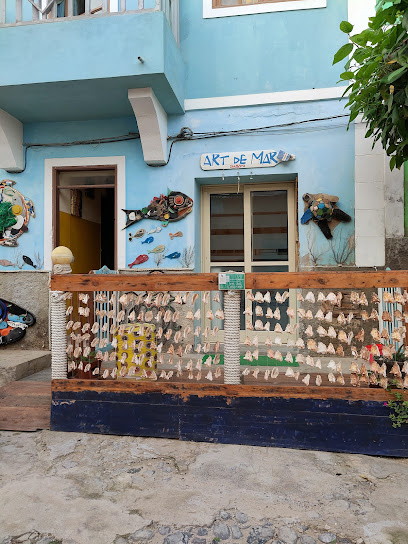
Centro Comercial
Explore the vibrant Centro Comercial in Praia, where local flavors meet convenience in a colorful shopping experience.

Art D'Cretcheu
Discover the essence of Cabo Verde at Art D'Cretcheu, where local craftsmanship meets unforgettable souvenirs.
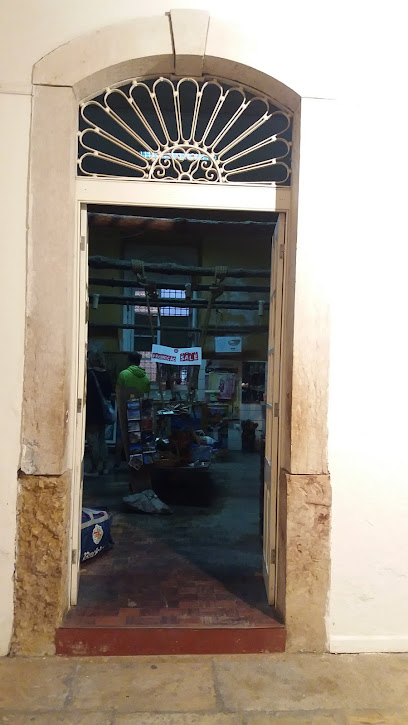
alternativa Galeria
Explore the rich culture of Cape Verde at Alternativa Galeria, a vibrant art gallery and bookstore in Mindelo, offering local art, literature, and events.
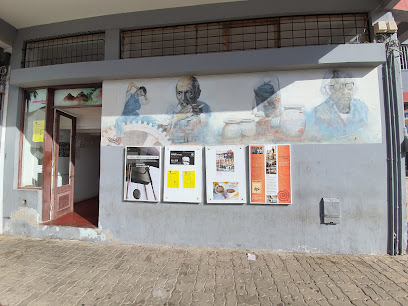
Água de Cabo Verde
Explore the captivating scents of Cape Verde at Água de Cabo Verde, a premier perfume store in Praia offering unique fragrances and aromatic treasures.
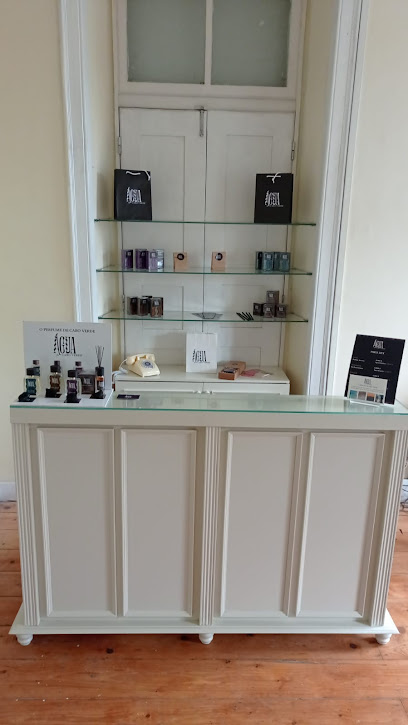
Essential bars & hidden hideouts
Ocean Cafe
Discover Ocean Cafe in Santa Maria for an unforgettable dining experience featuring delicious pizzas and refreshing drinks in a vibrant atmosphere.
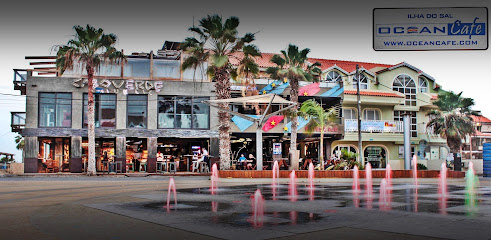
Morabeza Beach Bar & Lounge Restaurant
Savor delightful cuisine and breathtaking ocean views at Morabeza Beach Bar & Lounge Restaurant in Cape Verde.
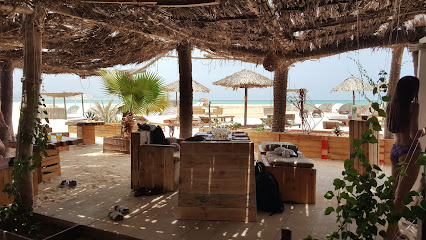
Kebra Cabana
Discover Kebra Cabana in Praia, a vibrant bar and restaurant blending local flavors with lively events for an unforgettable Cape Verde experience.
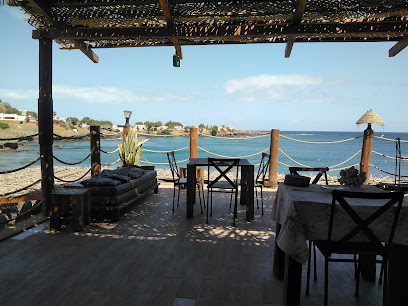
Perola D'Chaves
Discover the vibrant flavors of Cape Verde at Perola D'Chaves, where fresh ingredients meet culinary artistry in a welcoming atmosphere.
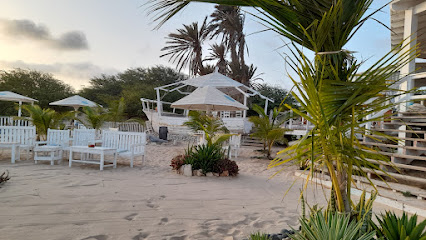
Kalimba Beach Club By Oásis Atlântico
Experience the vibrant atmosphere and stunning ocean views at Kalimba Beach Club in Mindelo, the perfect seaside retreat for relaxation and fun.
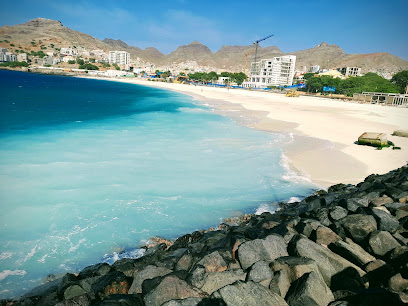
Sal Beach Club
Indulge in a culinary adventure at Sal Beach Club, a beachside restaurant in Santa Maria offering local and international flavors.
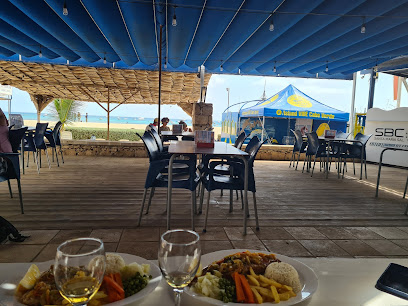
Buddy Bar
Discover Buddy Bar in Santa Maria for a vibrant nightlife experience, delicious drinks, and a lively atmosphere that captivates every visitor.
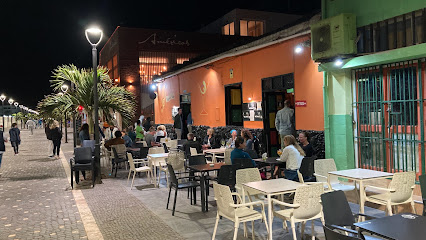
The Dubliner - Irish Bar
Experience the charm of Ireland at The Dubliner Irish Bar, located steps from Santa Maria Beach, offering authentic food, drinks, and vibrant entertainment.
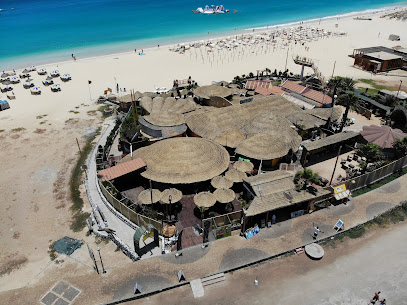
Pub Calema
Discover the lively nightlife at Pub Calema in Santa Maria, offering delicious drinks, live music, and a welcoming atmosphere for all.
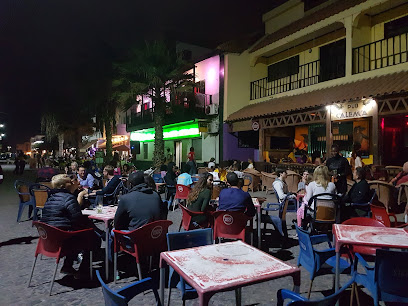
Boca Beach
Discover Boca Beach, the perfect blend of relaxation and excitement in Pavoacao Velha, Cape Verde's stunning tropical paradise.
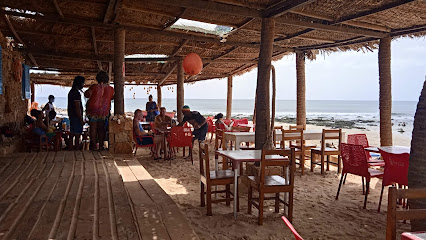
M.Sunset
Experience the vibrant ambiance and delicious tapas at M.Sunset, the perfect lounge in Mindelo for relaxation and sunset views.
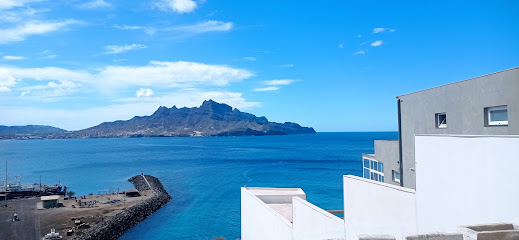
Morabeza Beach Club
Experience the flavors of Cape Verde at Morabeza Beach Club, where ocean views and culinary delights meet in Santa Maria.
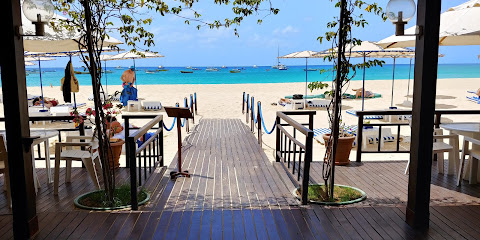
Tortuga Beach Resort
Experience the beauty of Cape Verde at Tortuga Beach Resort, where relaxation meets vibrant coastal dining at Praia d’Estoril.
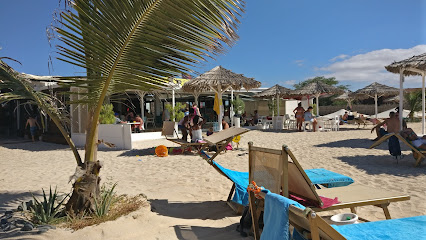
Bahia, The Beach
Experience the vibrant flavors of Cape Verde at Bahia, The Beach, where delicious seafood meets stunning ocean views.
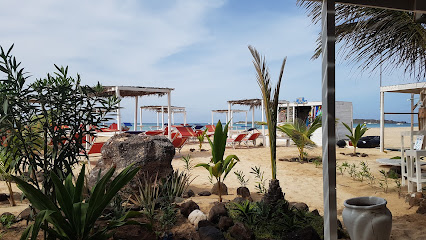
Local Phrases about Praia de Diante
-
- HelloOlá
[oh-lah] - GoodbyeAdeus
[ah-deh-oos] - YesSim
[seem] - NoNão
[now] - Please/You're welcomePor favor
[pohr fah-vohr] - Thank youObrigado/Obrigada
[oh-bree-gah-doo/oh-bree-gah-dah] - Excuse me/SorryDesculpe
[dehs-kool-peh] - How are you?Kusé ki bó ta?
[koo-seh kee boh tah] - Fine. And you?Bem. E bó?
[behn. eh boh] - Do you speak English?Bó ta papia Inglês?
[boh tah pah-pee-ah eeng-glehs] - I don't understandN ka ta intendi
[en kah tah een-tehn-dee]
- HelloOlá
-
- I'd like to see the menu, pleaseMi ta kere mira menu, por favor
[mee tah keh-reh mee-rah meh-noo, poor fah-vohr] - I don't eat meatN ka kome karni
[en kah koh-meh kahr-nee] - Cheers!Saúde!
[sow-deh] - I would like to pay, pleaseMi ta kere paga, por favor
[mee tah keh-reh pah-gah, poor fah-vohr]
- I'd like to see the menu, pleaseMi ta kere mira menu, por favor
-
- Help!Ajuda!
[ah-joo-dah] - Go away!Bai pa lá!
[by pah lah] - Call the Police!Liga pulísia!
[lee-gah poo-lee-see-ah] - Call a doctor!Liga médiku!
[lee-gah meh-dee-koo] - I'm lostN sta perdi
[en stah pehr-dee] - I'm illN sta duenti
[en stah doo-ehn-tee]
- Help!Ajuda!
-
- I'd like to buy...Mi ta kere kumpra...
[mee tah keh-reh koom-prah] - I'm just lookingMi ta só odja
[mee tah soh oh-djah] - How much is it?Kantu kusta?
[kahn-too koos-tah] - That's too expensiveEs kara demais
[esh kah-rah deh-mah-eesh] - Can you lower the price?Bó ta podi baixa preçu?
[boh tah poh-dee by-shah preh-soo]
- I'd like to buy...Mi ta kere kumpra...
-
- What time is it?Kua ora ki ê?
[koo-ah oh-rah kee eh] - It's one o'clockÉ un ora
[eh oon oh-rah] - Half past (10)Metad (10)
[meh-tahd (deh-see)] - MorningManhã
[mah-nyah] - AfternoonTarde
[tahr-deh] - EveningTarde
[tahr-deh] - YesterdayOnti
[ohn-chee] - TodayOji
[oh-jee] - TomorrowAmánha
[ah-mahn-yah] - 1Un
[oon] - 2Dôs
[dohs] - 3Tres
[trehs] - 4Kuatro
[kwah-troh] - 5Sinku
[seen-koo] - 6Seis
[seys] - 7Seti
[seh-tee] - 8Oitu
[oh-ee-too] - 9Nôbi
[noh-bee] - 10Des
[dehs]
- What time is it?Kua ora ki ê?
-
- Where's a/the...?Undi ki ta...
[oon-dee kee tah] - What's the address?Kusé kusa di endereçu?
[koo-seh koo-sah dee en-deh-reh-soo] - Can you show me (on the map)?Bó ta pode mi monstra (na mapa)?
[boh tah poh-deh mee mohn-strah (nah mah-pah)] - When's the next (bus)?Kusé ki ora ki ta passa (bus)?
[koo-seh kee oh-rah kee tah pah-sah (boos)] - A ticket (to ....)Um bilhete (pa ....)
[oom beel-yeh-teh (pah)]
- Where's a/the...?Undi ki ta...
History of Praia de Diante
-
Praia de Diante's history dates back to the 15th century when Portuguese explorers first discovered the archipelago of Cabo Verde. The area was initially uninhabited and was later settled by Portuguese colonists and African slaves. The strategic location of Praia de Diante made it an important stopover for ships traveling between Europe, Africa, and the Americas.
-
In the 16th and 17th centuries, Praia de Diante became a bustling hub for maritime trade. The natural harbor facilitated the docking of ships loaded with goods such as salt, cotton, and slaves. This period marked significant economic growth for the region, with the establishment of trading posts and warehouses along the coastline.
-
During the 17th and 18th centuries, Praia de Diante faced numerous pirate attacks due to its strategic importance and wealth. In response, the Portuguese built several coastal fortifications to protect the settlement and its inhabitants. Fort Real de São Filipe, constructed in 1590, is one of the most notable fortresses from this era, offering a glimpse into the defensive architecture of the time.
-
Praia de Diante played a pivotal role in the transatlantic slave trade. The island's location made it a key transit point for enslaved Africans being transported to the Americas. The remnants of this dark chapter in history are evident in the historic sites and artifacts found in the area, serving as a somber reminder of the past.
-
In the 19th century, Praia de Diante experienced significant urban development as the Portuguese colonial administration established its presence. The city saw the construction of administrative buildings, churches, and schools. The architectural style of this period reflects a blend of European and African influences, contributing to the unique cultural heritage of the region.
-
Cabo Verde gained independence from Portugal in 1975, marking a new chapter in the history of Praia de Diante. The post-independence period saw efforts to preserve and celebrate the cultural heritage of the area. Modern-day Praia de Diante is a vibrant destination that celebrates its rich history while embracing contemporary development.
Praia de Diante Essentials
-
Praia de Diante is located in the heart of Mindelo on the island of São Vicente in Cabo Verde. The nearest international airport is Cesária Évora Airport (VXE), approximately 10 kilometers from Mindelo. From the airport, you can take a taxi to Praia de Diante, which typically takes about 15-20 minutes. Multiple international flights connect through Lisbon, Portugal, and some other European cities.
-
Transportation within Mindelo is convenient with options ranging from taxis to local buses called 'aluguers'. Taxis are abundant and can be hailed on the street or booked in advance. Aluguers are minivans that follow set routes and are an economical option for getting around. For a more flexible experience, you can also rent a car from rental agencies available in the city.
-
The official currency of Cabo Verde is the Cape Verdean Escudo (CVE). Credit cards are widely accepted in hotels, restaurants, and larger shops, but it is advisable to carry some cash for smaller establishments or markets. ATMs are available throughout Mindelo, including near Praia de Diante. Note that some ATMs may charge a fee for withdrawals.
-
Praia de Diante and Mindelo, in general, are relatively safe for tourists, but it's important to stay cautious. Avoid walking alone at night, especially in poorly lit areas or less populated neighborhoods. Areas with higher crime rates targeting tourists include the neighborhoods of Alto de Bomba and Monte Sossego. Keep your belongings secure and be mindful of pickpockets in crowded places.
-
In case of emergency, dial 132 for police assistance, 131 for medical emergencies, and 800 11 12 for fire services. The main hospital in Mindelo is Hospital Baptista de Sousa, which is equipped to handle most medical situations. Pharmacies are also available for minor health issues. It is recommended to have travel insurance that covers medical emergencies and other contingencies.
-
Fashion: Do dress modestly, especially when visiting religious sites. Avoid overly revealing clothing. Religion: Do respect local customs and traditions. Always be quiet and respectful in places of worship. Public Transport: Do be courteous and give up your seat to elderly passengers. Don’t eat or drink on public transport. Greetings: Do greet people with a handshake or a friendly 'Bom dia' (Good day). A smile goes a long way. Eating & Drinking: Do try local dishes and accept food offerings graciously. Don’t refuse hospitality, as it is considered impolite.
-
To experience Praia de Diante like a local, visit the nearby fish market early in the morning to see the day's catch and enjoy fresh seafood. Engage with locals, as they are often friendly and willing to share stories about Mindelo’s rich culture and history. Don’t miss the lively music scene; Mindelo is known as the cultural capital of Cabo Verde and offers numerous live music venues. For a unique experience, take a boat trip to the nearby island of Santo Antão, known for its stunning landscapes and hiking trails.
Trending Landmarks in Praia de Diante
-
The Pier of Santa Maria
-
Hotel Riu Touareg
-
Hotel RIU Karamboa
-
Salinas de Pedra de Lume
-
Pachamama Eco Park - Viveiro Botanical Garden
-
Praia da Atalanta
-
Praia de Santa Mónica
-
Lighthouse Dona Maria Pia
-
Chapel of Our Lady of Fatima
-
Cape Verde Sailing
-
Praia de Cabral
-
Chaminé de Chaves
-
Núcleo Museológico da Praia
-
Praia d' Diante
-
Praia da Chave
Nearby Cities to Praia de Diante
-
Things To Do in Boa Vista
-
Things To Do in Santa Maria
-
Things To Do in Espargos
-
Things To Do in Vila do Maio
-
Things To Do in Assomada
-
Things To Do in Praia
-
Things To Do in Dakar
-
Things To Do in Thiès
-
Things To Do in Mbour
-
Things To Do in Saint-Louis
-
Things To Do in Bakau
-
Things To Do in Serekunda
-
Things To Do in Serrekunda
-
Things To Do in Gunjur
-
Things To Do in Lamin









